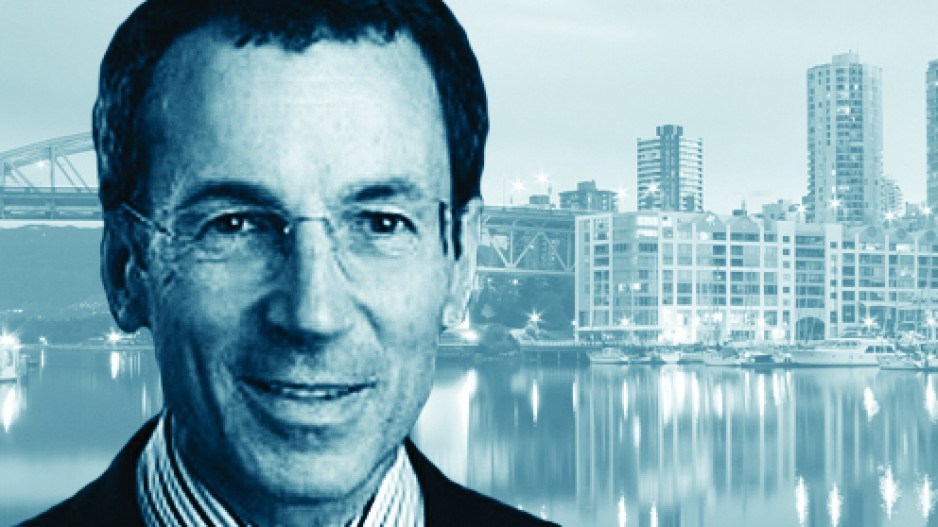Because we let this bubble get so big, shrinking back to a healthy real estate market more aligned with local incomes is going to be painful
The political pendulum has finally swung. With the B.C. government’s 15% property transfer tax on foreign buyers, fairness has reared its handsome head over finances – at a huge price and at huge risk for both politicians and recent homebuyers. Real estate sales have plunged, and prices appear to be in hot pursuit.
While the pendulum was working its way back, B.C.’s finances bathed in the glory of a surging real estate market, to the point where real estate-related taxes are now the single biggest contributor to the B.C. government’s revenue, more than any other industry. This $2.2 billion bonanza this year, double the government’s projection, has given the province an unexpected $1.92 billion surplus and a war chest to deal with the political fallout.
The cost of this windfall is boiling voter anger at the rampant unfairness underpinning our real estate boom. Unfairness to average families who can’t find an affordable three-bedroom suite because the new housing market is skewed to investor product. Unfairness to those who earn money legitimately but compete on housing purchases with others who are laundering proceeds of crime and fraud. Unfairness to local buyers who can’t access offshore pre-sales of local condo developments. Unfairness to local homebuyers who can’t get the same mortgage deals at the banks as foreign buyers with no apparent source of income. Unfairness to taxpayers whose payments make this place so attractive while others evade taxes altogether. Unfairness to those who pay capital gains taxes on real estate investment sales while others fudge principal residence requirements to avoid them. Unfairness to those of us who have every line on our income tax returns scrutinized while the Canada Revenue Agency (CRA) deliberately decides not to pursue obviously phony “student” and “housewife” homeowners’ tax returns. Unfairness to the real estate industry, finally forced out of self-regulation, while banks and lawyers are still able to cover up illegal real estate transactions within existing rules. Unfairness to new home buyers because builders have to wait months for municipal permits, adding thousands of hidden financing dollars to the price of a new home. Unfairness to renters squeezed out by AirBnB hosts who don’t pay hotel taxes.
Redressing all this unfairness won’t be done by a single action, least of all Vancouver’s futile snitch-on-vacant-properties tax. Action is needed at every level: cracking down on money-laundering and tax evasion, getting an extradition deal with China, faster permitting, subsidizing and incentivizing new rental suites, standing up to NIMBYism, shifting more tax revenue away from income onto property (as proposed by University of British Columbia (UBC) and Simon Fraser University policy experts), enforcing capital gains exemption rules, stopping AirBnB-type removals from the rental pool, letting UBC borrow for self-financed student rental buildings – and more. The challenge for politicians is finding actions that are the simplest and most effective. The 15% tax scores high by that measure.
But because we – all levels of government and the many beneficiaries of all this bountiful unfairness – let this bubble get so big, shrinking back to a healthy real estate market more aligned with local incomes is going to be painful. And we’ve probably gone too far (and have too little land) to ever reclaim the region’s preferred properties for mere income-earners.
Speculators gambling on a quick win have only themselves to blame, but desperate homeowners who needed a place to live and had no choice but to buy at the peak will be hurt. The province’s revenue will be hurt, even more if the 15% property tax on foreigners is successfully challenged in court. Real estate, financing, construction and fancy car sales jobs will be lost.
But any politician who can’t persuade the voters that they were sincere about making housing affordable will be toast. The BC Liberal government is especially vulnerable: it waited long enough to load up on revenue and create a lot of jobs, but the May election will reveal whether it was worth all that unfairness. •
Peter Ladner ([email protected]) is a co-founder of Business in Vancouver. He is a former Vancouver city councillor and former fellow at the SFU Centre for Dialogue. He is the author of The Urban Food Revolution




